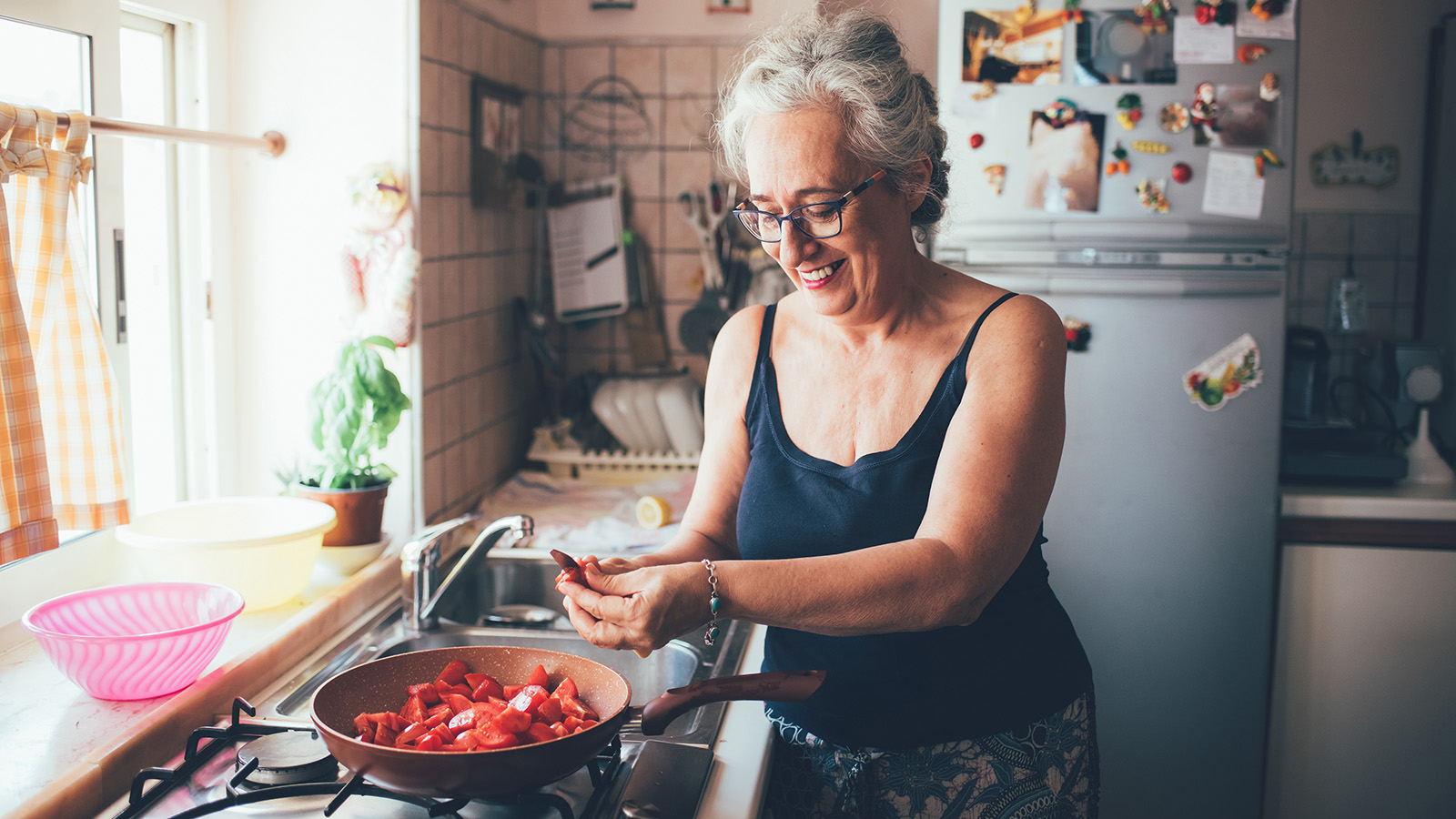Eating healthy with ovarian cancer

Balanced, healthy nutrition is important. Eating a healthy diet can help you heal faster, stay healthier and feel better. During and after your ovarian cancer treatment, be sure to:
- Take in enough calories every day.
- Eat a balanced diet. This means eating a healthy variety of protein, carbohydrates and fat. Make sure you have healthy foods handy for when you need them.
- Keep a healthy weight.
- Keep moving to work your muscles. Ask your doctor what kind of exercise may be right for you.
- Stay hydrated.
Why are these important? The body needs certain nutrients to help it heal. Healing takes energy – so you need calories. Your body needs protein to help the tissue heal after surgery. If you don’t eat enough protein, the body will take what it needs from your muscles. This can cause you to lose muscle mass. When your muscles get weaker, you also lose strength. This makes it harder to go about your day.
Healthy nutrition can keep your immune system stronger. A healthy immune system helps keep your cell counts up and lowers the risk for infection. Chemotherapy often causes cell counts to go down. This may lead to infection (if white blood cells get too low), bleeding (if platelets get too low) or anemia (if red blood cells get too low). Keeping your cell counts up may help you stay on track with your treatments. When cell counts are too low, you may have to miss or delay treatments.
Sometimes, eating healthy is hard due to the side effects of your therapy. Here are some ideas that may help.
For nausea and vomiting
- Eat small meals and snacks throughout the day.
- If smells bother you, let someone else do the cooking and stay away from the kitchen.
- Take nausea medications as prescribed – and try to eat when they are working their best.
When you don’t have an appetite or don’t feel like eating
- Eat small meals and snacks throughout the day. Try to eat foods that are high in calories. Examples include peanut butter, avocado, protein smoothies and nuts.
- Have food prepared and ready.
- Keep as active as you can to help stimulate your appetite.
If you are constipated
- Drink plenty of fluids, such as water, water with electrolytes, milk, fruit juice, decaffeinated tea or sports drinks. Avoid caffeine.
- Add more high-fiber foods, like fruits and vegetables, whole grains, nuts and seeds.
If you feel bloated
- Drink your liquids without using a straw.
- Stay away from carbonated beverages.
- Avoid greasy foods or other foods that make you gassy.
If you have a fever
- Take in enough calories. You burn more calories when you have a fever.
- Be sure to drink fluids even if you don’t feel like it. Try fluids with calories like chicken soup or protein smoothies.
- Contact your doctor if you have a fever 100.4°F or higher.
Work with your doctor or dietitian to help you plan your meals and grocery to get the most from your diet.
This information is not a substitute for medical advice or treatment. Talk to your doctor or health care provider about your medical condition and prior to starting any new treatment. CVS Specialty assumes no liability whatsoever for the information provided or for any diagnosis or treatment made as a result, nor is it responsible for the reliability of the content.
CVS Specialty does not operate all the websites/organizations listed here, nor is it responsible for the availability or reliability of their content. These listings do not imply or constitute an endorsement, sponsorship, or recommendation by CVS Specialty.
Your privacy is important to us. Our employees are trained regarding the appropriate way to handle your private health information.
This document contains references to brand-name prescription drugs that are trademarks or registered trademarks of pharmaceutical manufacturers not affiliated with CVS Specialty.
